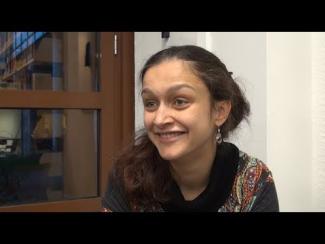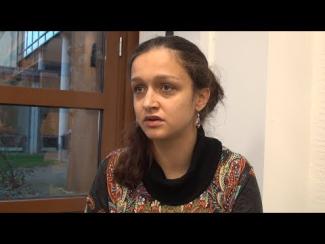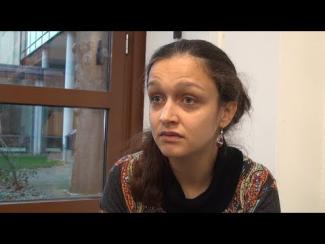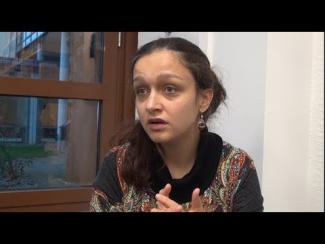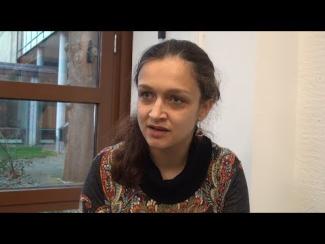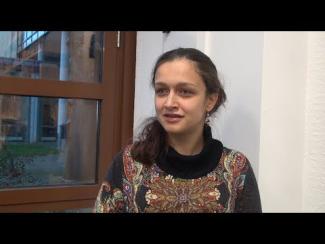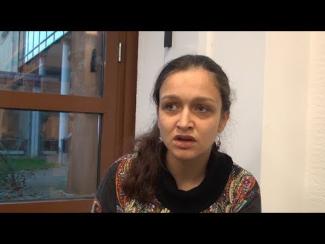The Yiddish Book Center's
Wexler Oral History Project
A growing collection of in-depth interviews with people of all ages and backgrounds, whose stories about the legacy and changing nature of Yiddish language and culture offer a rich and complex chronicle of Jewish identity.
Sasha Lurje's Oral History
Sasha Lurje, singer of Yiddish music, was interviewed by Agnieszka Ilwicka on November 25th, 2015, at the Library of Eastern European Studies, Freie Universität, Berlin, Germany. Sasha comes from what she calls a "typical untypical" Eastern European family which experienced many of the chaotic events of recent Russian history. Her father was Jewish and her mother not; they came from different parts of Eastern Europe and met on a trip to Bulgaria. Born in 1985, she grew up in a flat in a small Soviet apartment building in Riga. Although it was considered a large, attractive apartment when Sasha was young, to her modern eyes it is not an appealing place. Sasha's parents were secular and practiced neither religion; now that she is involved in the Yiddish music scene people ask about her background and she has some difficulty defining herself. Sasha's family spoke Russian at home, and she does not recall anyone speaking Yiddish, even in her Jewish grandparents' generation. Sasha's family was proud that she learned Yiddish, but she is now the only one who can speak and read the language. When she was a teenager, Sasha joined a youth Jewish theater which performed in Russian and Yiddish; she participated in a singing group which sang Yiddish and Israeli songs. She remembers the excitement of performing at Klezfest in St. Petersburg, beginning to learn Yiddish, and working at the Jewish Museum in Riga. Her Yiddish skills seemed to evolve organically rather than through formal study. Sasha started out in a technical school but soon realized that this was not for her and switched to intercultural relations and cognitive linguistics at the Culture Academy in Latvia. The course of study there allowed her to take courses as well at the Academy of Music. Sasha explains how coming from the Old World helps her relate to the lyrics of Yiddish music. She describes Yiddish as a restless language; its incorporation into a relaxed melody makes Yiddish music unique. Sasha tells interesting stories about encounters with Yiddish speakers such as Pesach Fiszman in Weimar, Janina Wurbs in Berlin, and Josh Waletsky in Borough Park. Sasha's current band, Forshpil, was founded in 2003 and found a new style under the influence of Ethel Raim from the Pennywhistlers. At this point all the musicians have a deep understanding of Yiddish history and music which adds to the authenticity. Sasha now lives in Berlin and talks about the Yiddish music scene, its various "bubbles" and how it has evolved over time. She is hopeful about the future of Yiddish and thinks that one of the most beautiful things about Yiddishkayt is that it is now a culture taking root in various countries. She loves that new modern Yiddish words are being created. She explains the importance of musicians respecting and learning the language rather than just parroting transliterated words on a piece of paper.
This interview was conducted in English.

